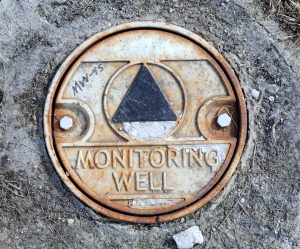 Even if an insurance company attempts to deny its coverage obligations, there are still processes that a policyholder can explore, short of litigation, that could resolve a coverage dispute. Appraisal is an alternative dispute resolution process designed to efficiently resolve measurement disputes between policyholders and their insurers. Appraisal can streamline a coverage lawsuit and narrow the disputed issues—it may even limit the need for expert reports and depositions. There is a strong public policy favoring appraisals throughout the country, not only because they may provide a less expensive alternative to litigation, but also because appraisal rulings are enforceable and strictly applied in court. Some states even require that form standard insurance policies include an appraisal clause requiring either party to, on demand, submit a dispute over the amount of a loss to an appraisal panel. (See Virginia Code § 38.2-2105; Cal. Ins. Code § 2071; McKinney’s Ins. Law§ 3404; N.J.S.A. § 17:36-5.20.) That panel typically consists of two appraisers, who select an umpire.
Even if an insurance company attempts to deny its coverage obligations, there are still processes that a policyholder can explore, short of litigation, that could resolve a coverage dispute. Appraisal is an alternative dispute resolution process designed to efficiently resolve measurement disputes between policyholders and their insurers. Appraisal can streamline a coverage lawsuit and narrow the disputed issues—it may even limit the need for expert reports and depositions. There is a strong public policy favoring appraisals throughout the country, not only because they may provide a less expensive alternative to litigation, but also because appraisal rulings are enforceable and strictly applied in court. Some states even require that form standard insurance policies include an appraisal clause requiring either party to, on demand, submit a dispute over the amount of a loss to an appraisal panel. (See Virginia Code § 38.2-2105; Cal. Ins. Code § 2071; McKinney’s Ins. Law§ 3404; N.J.S.A. § 17:36-5.20.) That panel typically consists of two appraisers, who select an umpire.
Articles Posted in Property Damage
Insurance Coverage Claims for Theft, Vandalism and Curfews

Many U.S. businesses face income losses from theft, vandalism and resulting curfew orders, which have affected numerous cities in recent days.
Commercial property insurance policies may provide coverage for these losses, which are and should be treated as a separate claim from pandemic-related losses. Property policies cover physical damage to property and, usually, also provide coverage for business interruption losses if certain conditions are met. Whatever position insurers may take on contamination from COVID-19, they cannot plausibly contest that shattered windows, broken fixtures and stolen merchandise are physical loss or damage. And, while insurance policies vary, typically there is business interruption coverage for “Civil Authority” orders, such as curfews requiring businesses to close. Nearly always, such coverage requires the existence of property damage within some limited geographic radius surrounding the policyholder’s location. This often ranges from one to 10 miles. So if your business is closed by a curfew order and, for example, a building down the block had its windows shattered by thrown bricks, or worse, there is every reason to submit a claim. Bear in mind that, depending on the wording of your policy, the trigger for Civil Authority coverage may not be limited to damage to buildings: it may apply to property within buildings and property in the street, potentially including vandalized vehicles. Think outside the box (store).
A Primer on Bringing First-Party Insurance Claims
 The profound impact of COVID-19 leading businesses to file first-party insurance claims is now well known. Further, insurance companies are systematically pushing back on potential coverage for COVID-19, with some issuing blanket coverage denials without investigation. In other words, this is not an ordinary claims environment. Against this backdrop, many policyholders are facing what may be their first significant insurance claim. This primer will familiarize such policyholders with the initial steps of the first-party insurance claims process. Whether a potential claim is related to COVID-19 or not, understanding the claims process is the best first step towards avoiding pitfalls and maximizing chances of recovery.
The profound impact of COVID-19 leading businesses to file first-party insurance claims is now well known. Further, insurance companies are systematically pushing back on potential coverage for COVID-19, with some issuing blanket coverage denials without investigation. In other words, this is not an ordinary claims environment. Against this backdrop, many policyholders are facing what may be their first significant insurance claim. This primer will familiarize such policyholders with the initial steps of the first-party insurance claims process. Whether a potential claim is related to COVID-19 or not, understanding the claims process is the best first step towards avoiding pitfalls and maximizing chances of recovery.
Cyber Coverage by any Other Name Can Smell as Sweet: Maryland Court Rules Traditional Property Policy Covers Loss of Data and Impaired Computer Equipment After Ransomware Attack.
 Cyberattacks are an increasingly frequent and costly risk faced by almost every business today. While the availability and scope of cyber-specific insurance has developed exponentially over the past few years, it is important to remember that more traditional policies (such as general liability and first-party property insurance) can still be a source for coverage in connection with cyber incidents, as a recent court decision demonstrates.
Cyberattacks are an increasingly frequent and costly risk faced by almost every business today. While the availability and scope of cyber-specific insurance has developed exponentially over the past few years, it is important to remember that more traditional policies (such as general liability and first-party property insurance) can still be a source for coverage in connection with cyber incidents, as a recent court decision demonstrates.
Getting Ahead of the Coronavirus Epidemic: What It Means for Insuring Your Business
 There has been a drumbeat of news reports about Wuhan, China, a city more populous than any in the United States, which is in effective lock-down because of the coronavirus. Foreign nationals are being evacuated, travel has been restricted, and business is at a standstill. At a time like this, preserving public health is the highest priority. But businesses, both local and global, are also affected by shut-down orders, disruptions to their supply chains, mass sick days, and loss of business. Many, especially providers of hospitality or health care, may face elevated liability risks for exposing others to a contagion. It is important to remember that insurance may be available to meet these risks.
There has been a drumbeat of news reports about Wuhan, China, a city more populous than any in the United States, which is in effective lock-down because of the coronavirus. Foreign nationals are being evacuated, travel has been restricted, and business is at a standstill. At a time like this, preserving public health is the highest priority. But businesses, both local and global, are also affected by shut-down orders, disruptions to their supply chains, mass sick days, and loss of business. Many, especially providers of hospitality or health care, may face elevated liability risks for exposing others to a contagion. It is important to remember that insurance may be available to meet these risks.
A Recent “Event” in Wisconsin: Appellate Court Rules That a Commonly Used London Market “Occurrence” Definition Is Ambiguous
 In recent years, Wisconsin generally has been a pro-policyholder jurisdiction when it comes to long-tail environmental coverage cases. That trend continues with a decision by a Wisconsin appellate court in a case involving coverage for environmental cleanup costs at a former manufactured gas plant site. In Superior Water, Light & Power Co. v. Certain Underwriters at Lloyd’s, London Subscribing to Policy Nos. K22700, CX2900, and CX2901, the court reversed a lower court and held that there may be coverage under historic policies if there was damage to groundwater during the policy period, notwithstanding that site operations had ceased years earlier. This is an important decision, as the same historic London Market “occurrence” definition was used in many policies issued to other policyholders by London Market Insurers during the same time frame. (A description of some of the unique aspects of the London insurance market can be found here.)
In recent years, Wisconsin generally has been a pro-policyholder jurisdiction when it comes to long-tail environmental coverage cases. That trend continues with a decision by a Wisconsin appellate court in a case involving coverage for environmental cleanup costs at a former manufactured gas plant site. In Superior Water, Light & Power Co. v. Certain Underwriters at Lloyd’s, London Subscribing to Policy Nos. K22700, CX2900, and CX2901, the court reversed a lower court and held that there may be coverage under historic policies if there was damage to groundwater during the policy period, notwithstanding that site operations had ceased years earlier. This is an important decision, as the same historic London Market “occurrence” definition was used in many policies issued to other policyholders by London Market Insurers during the same time frame. (A description of some of the unique aspects of the London insurance market can be found here.)
Environmental Closure Costs Are Covered! (And Are Not Ordinary Costs of Doing Business)
 Insurers have recently argued that environmental property damage claims for “closure” costs arising out of historic pollution are not covered, because the claimed damages are just “ordinary costs of doing business.” Policyholders should strongly resist denials based on this argument, which is unsupported custom and practice in the insurance industry and contradicts the terms of standard-form third-party liability policies, applicable environmental laws, and insurance law in nearly all jurisdictions.
Insurers have recently argued that environmental property damage claims for “closure” costs arising out of historic pollution are not covered, because the claimed damages are just “ordinary costs of doing business.” Policyholders should strongly resist denials based on this argument, which is unsupported custom and practice in the insurance industry and contradicts the terms of standard-form third-party liability policies, applicable environmental laws, and insurance law in nearly all jurisdictions.
Ohio Court Holds Stolen Cryptocurrency Constitutes Covered Property Under Homeowner’s Policy
 A little over a month ago, a judge in Franklin County, Ohio, held that Bitcoin—a popular form of cryptocurrency—constitutes covered “property” under the terms of a traditional homeowner’s policy.
A little over a month ago, a judge in Franklin County, Ohio, held that Bitcoin—a popular form of cryptocurrency—constitutes covered “property” under the terms of a traditional homeowner’s policy.
In Kimmelman v. Wayne Insurance Group, an insured, James Kimmelman, sought coverage from his personal insurer for a loss of $16,000 in Bitcoin that was purportedly stolen from Kimmelman’s online account. Kimmelman argued that the Bitcoin constituted covered property under his homeowner’s policy. The insurer argued that Kimmelman was only entitled to recover $200 under a policy sublimit for monetary losses.
Unjust Enrichment – How Property Insurers Use It to Deny Covered Losses
 Imagine your organization has suffered significant property damage and interruption to your business as a result. The cause could be anything—a natural disaster, severe mechanical breakdown or a cyberattack. You notify your property insurance carrier and adjust the claim, submitting calculations of your losses based on the policy’s coverages and other terms. But in response, your carrier only agrees to pay a fraction of the losses, claiming that otherwise your organization would be better off than before the damage—“unjustly enriched”—and that insurance is not meant for gain, but only to put the insured in the position it would have been without the damage.
Imagine your organization has suffered significant property damage and interruption to your business as a result. The cause could be anything—a natural disaster, severe mechanical breakdown or a cyberattack. You notify your property insurance carrier and adjust the claim, submitting calculations of your losses based on the policy’s coverages and other terms. But in response, your carrier only agrees to pay a fraction of the losses, claiming that otherwise your organization would be better off than before the damage—“unjustly enriched”—and that insurance is not meant for gain, but only to put the insured in the position it would have been without the damage.
All “Hail” the Importance of Documenting Claims
 A recent case in the Fifth Circuit, Certain Underwriters at Lloyd’s of London v. Lowen Valley View, L.L.C., provides a valuable reminder to policyholders of the importance of promptly investigating any event that could cause damage, documenting that damage shortly after it occurs, and putting insurers on notice of the potential claim. Failure to do so could forfeit the insurance available for otherwise covered losses.
A recent case in the Fifth Circuit, Certain Underwriters at Lloyd’s of London v. Lowen Valley View, L.L.C., provides a valuable reminder to policyholders of the importance of promptly investigating any event that could cause damage, documenting that damage shortly after it occurs, and putting insurers on notice of the potential claim. Failure to do so could forfeit the insurance available for otherwise covered losses.
 Policyholder Pulse
Policyholder Pulse


